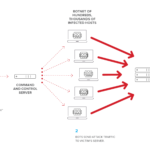Building Trust In Customer Relationships
Business relationships between companies and customers are unique in that they rely on trust to get going. When you purchase a new product from a store, you’re trusting that the product will function as advertised, that it will last a reasonable amount of time, that it will not cause harm when used properly, and more.
Even an established brand may have some trust-building to do when introducing a new product or a reformulated product, meaning a name alone isn’t enough to build trust.
It certainly helps to have an established name brand behind a product, but as Coca-Cola discovered during its New Coke roll-out in the 1980s, even the most established brands can fall out of customers’ good graces.
Is Your Business Certified?
One of the biggest advantages you can have when building trust is to have your business certified by an independent authority in your given industry. In the aerospace industry, you can purchase tilt switches today from a certified manufacturer, and this usually means that you are purchasing from a supplier that has undergone an evaluation process by an authoritative entity that has measured various important qualities about the supplier. Some criteria used during certification may include things like customer service and complaint history, manufacturing standards, adherence to fair business practices, and materials sourcing protocols.
Being certified helps to build trust since a customer can have confidence that a brand has been reviewed and tested by an entity that knows the industry. Word-of-mouth advertising is great, but advertising by voluntarily being placed under scrutiny can be even better in many cases. If you choose to have your business certified, make sure you’re doing so through a known and established certification provider. In a business-to-business sales model, your customers will likely know the names and standards of the various certification providers in your industry, but if you’re selling to consumers, you may want to look for common certification providers known to the general public.
Monitor Your Online Reputation
In the past, managing a company’s reputation was often done through word-of-mouth marketing campaigns. Modern reputation management is the process of ensuring that your business’ reputation remains unblemished on the web. In the digital age, this is done by regularly seeking out negative reviews and press, responding in a positive manner, and rectifying complaints quickly. Using the above example of a tilt switch manufacturer, if a particular tilt trim switch or adjustable tilt switch has been released and has received a lot of negative reviews, this can obviously hurt sales. As the manufacturer, your job would be to figure out why so many negative reviews were being put out on the web and what your company can do to fix things.
In this case, if your investigation led you to find that most customer complaints stemmed from not enough instruction being included in the literature that is packaged with each switch, you could rectify this by changing the packaging process. You may also need to rewrite and reprint the instructions for clarification. You may also provide access to online instruction manuals and set up a dedicated support phone line for customers to call if they have questions or run into problems.
By monitoring your reputation on the Internet, you have the ability to build trust by demonstrating that your brand is dedicated to supporting customers and rectifying problems quickly. If negative press and reviews go unanswered for even a short amount of time, this can lead to even bigger problems for your brand’s name, reputation, and future sales down the road.












